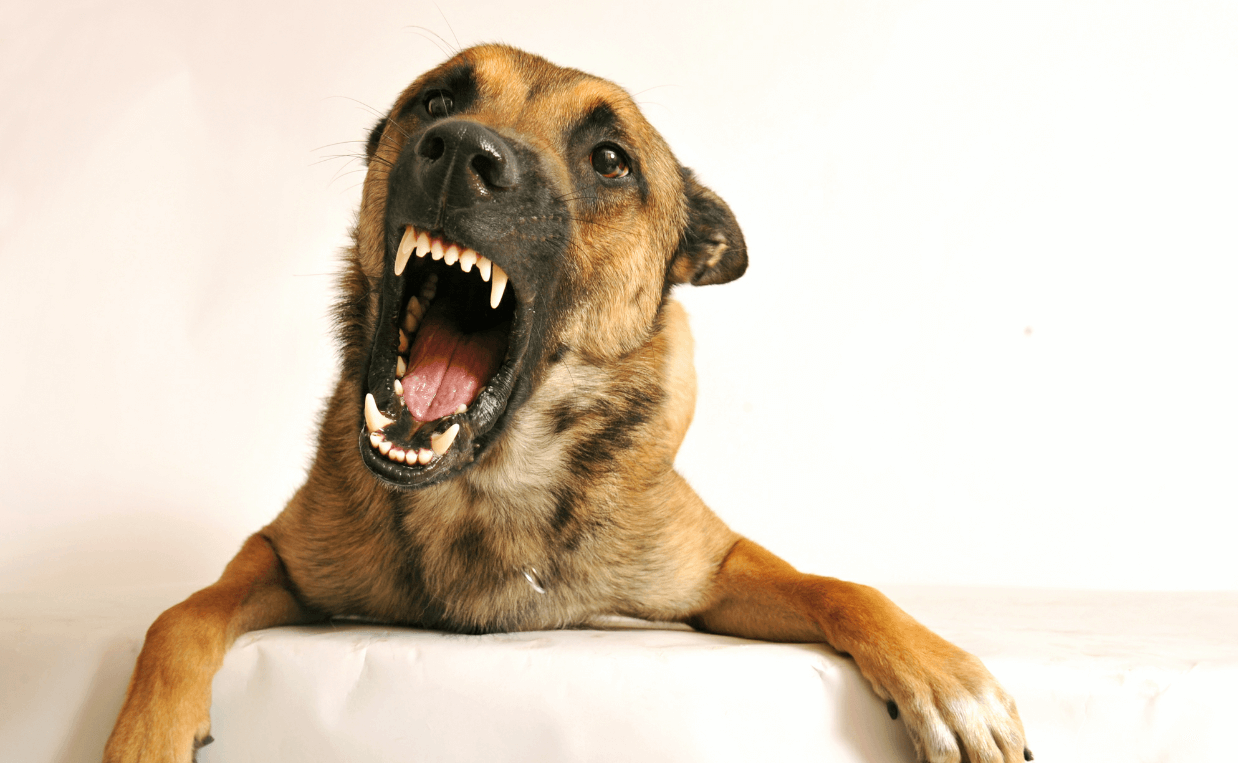
Aggression is one of the most serious canine problem behaviors; it is the top reason pet parents seek professional help from dog behaviorists, trainers and veterinarians.
It can be a frightening experience for a dog to act aggressively, especially if you know the dog to be docile and friendly and he or she suddenly starts behaving in an aggressive way.
Aggression in dogs is generally seen when a dog growls, lunges, bares his or her teeth, snaps or bites. In extreme cases, your dog may bite or attack you or a family member, even if he or she knows you well and has never acted that way before.
Canine aggression can get out of hand quickly and lead to injuries to other dogs or people. For this reason, it’s vital to determine the cause of the aggression and seek help if you’re unable to help your dog overcome the aggressive behavior.
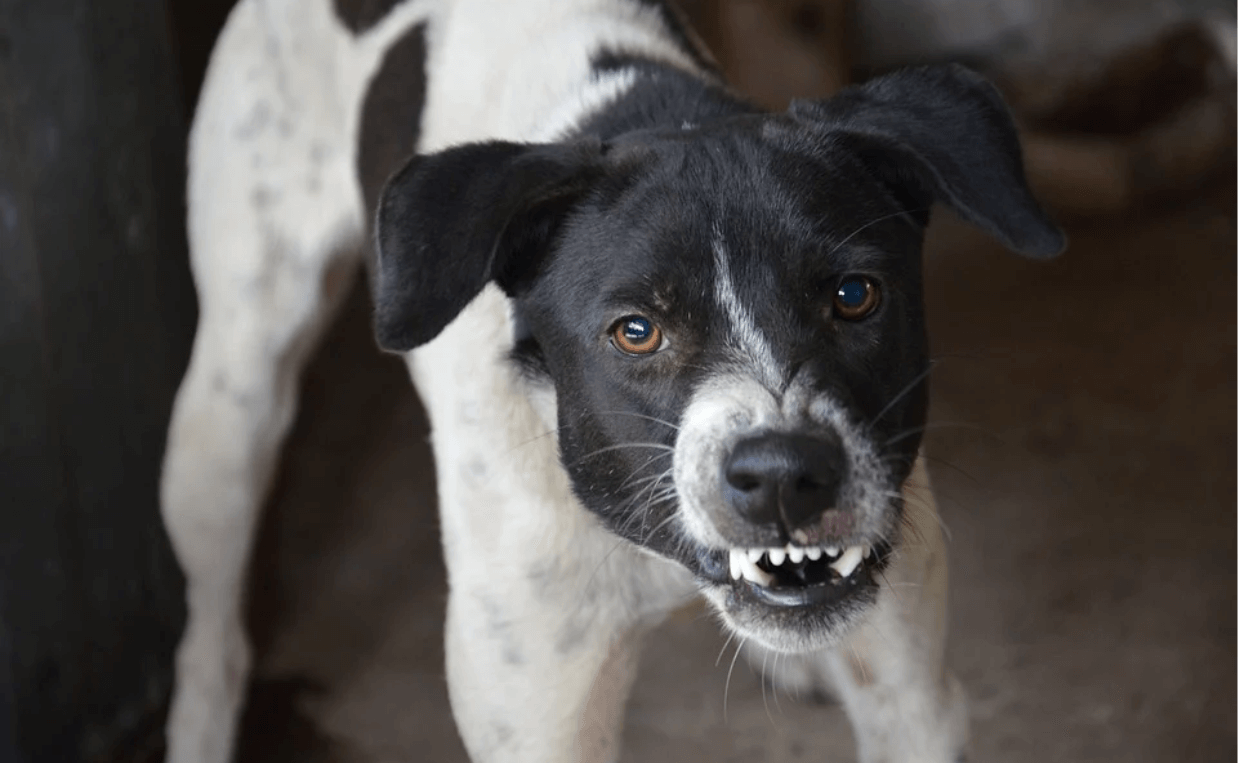
Why Do Dogs Show Aggression?
Understanding the reason your dog is acting aggressively is key to figuring out how to best address the behavior. There are several potential causes of canine aggression.
-
Illness or injury
When a dog is in pain he or she may act aggressively. If your dog has never displayed aggression before and suddenly starts growling, snapping or biting, a medical condition may be the cause.
Pain is an especially common source of aggression in dogs. Sometimes the disease or injury may not be apparent. Here are some conditions to look for:
- Arthritis
- Bone fractures
- Internal injuries
- Tumors
- Lacerations
- Brain disease
If your dog is exhibiting sudden aggression, talk to your veterinarian before attempting to address the issue as a behavior problem.
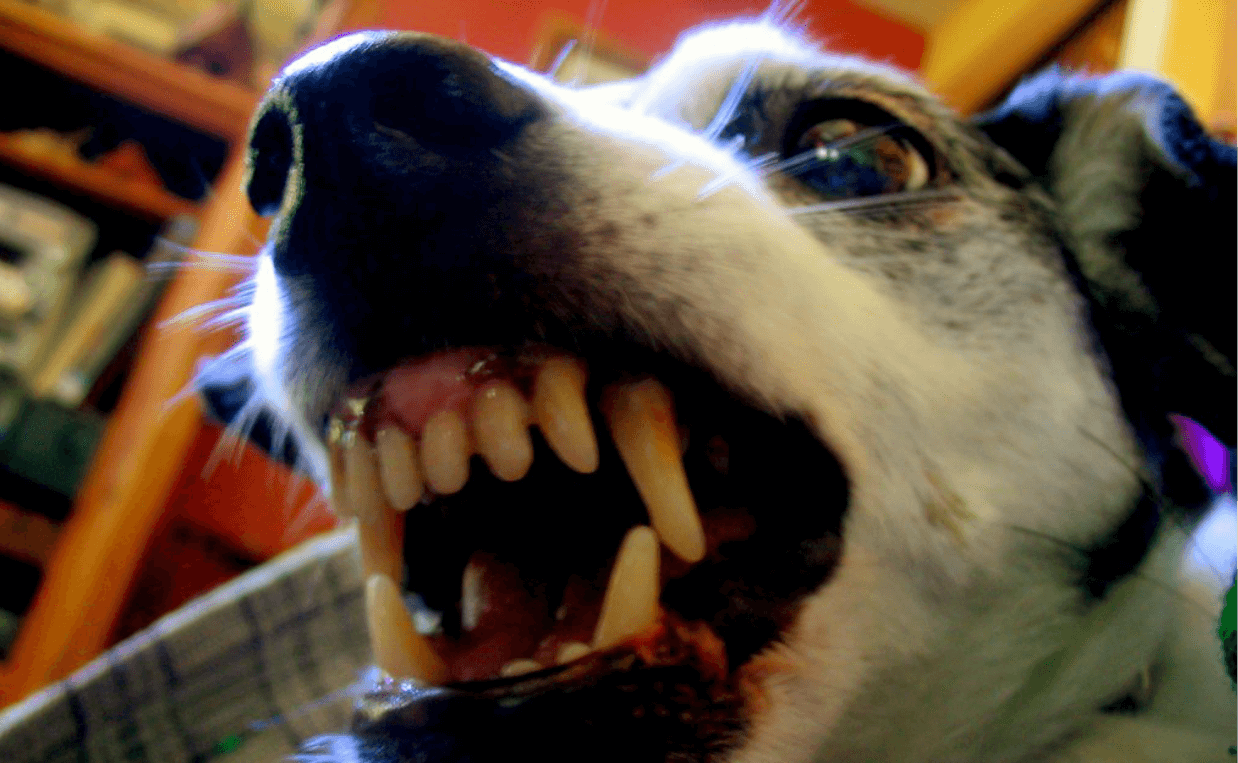
It may be tempting to give your dog pain medication to relieve pain, but this is not a good idea. If your dog is sick, you need to know what is wrong before treatment. Don’t try to take matters into your own hands.
-
Fear
Fear is sometimes the culprit behind aggressive behavior in dogs. A fearful dog may exhibit aggression out of trying to escape what they perceive as danger. For example, if someone looks as if they are going to hit the dog, the dog may react aggressively.
If you have adopted a rescue dog and he or she is behaving in an aggressive way, he or she may have been abused, neglected, traumatized or not socialized properly as a puppy. Try to find out what the rescue organization where you adopted the dog knows about your pup to help you determine the best way to handle the situation.
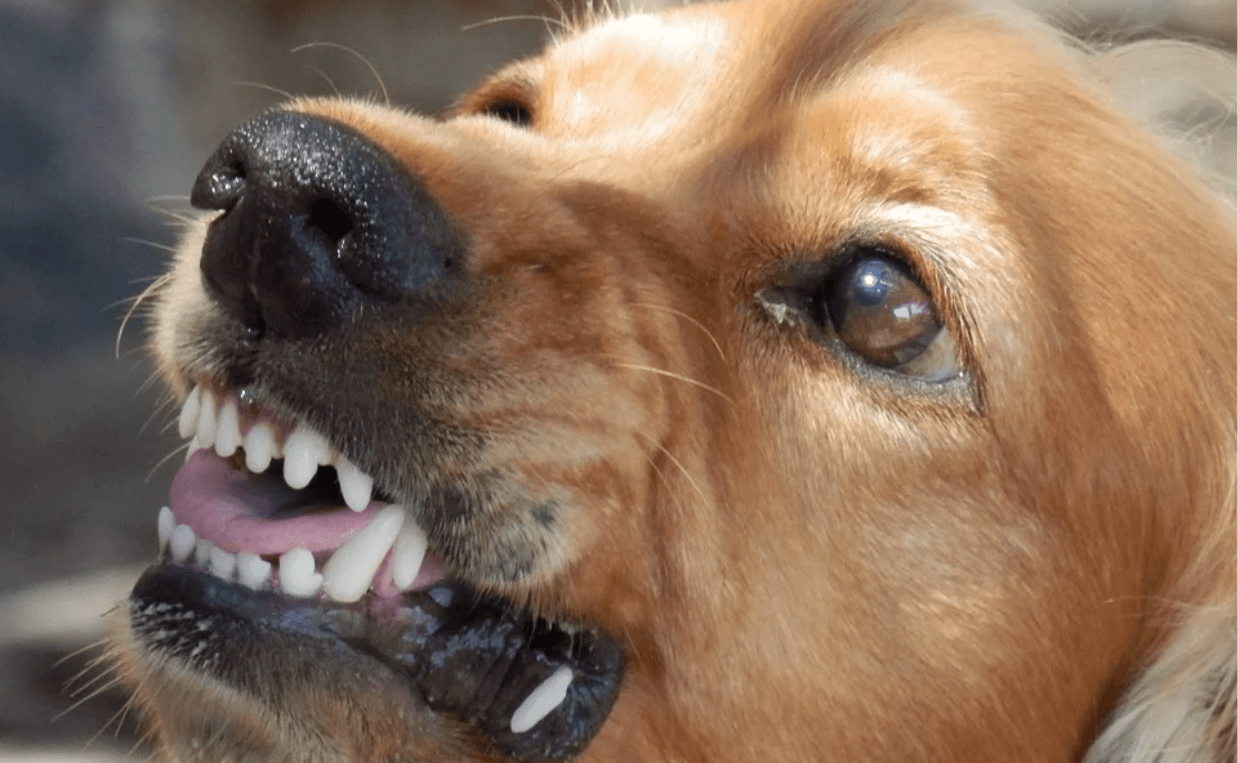
-
Possession aggression
Sometimes a dog will display aggression when trying to protect resources they value. This might be food, toys, chewies, a favorite place or other object of value.
The degree of aggression may vary from one dog to another or even between different objects. For example, your dog may be perfectly fine if you pet him or her while he’s chewing on a rubber toy but will growl and snap if you get to close to his or her food bowl. It all depends on the value your dog places on the resource.
Possession aggression may be different if a person approaches the dog versus another dog. Usually a dog will display more aggression toward another dog than a human.
-
Dominance
Sometimes dogs behave aggressively in an attempt to show dominance. This is usually directed towards other dogs but can occur with people too.
It’s important to recognize that dominance is a behavior, not a personality trait. While some dogs may have a greater tendency to display dominance, they are not submissive or dominant by nature. Displaying dominance is determined more by circumstances than personality trait.
Thankfully, aggressively dominant behavior is not as common as other forms of aggression.
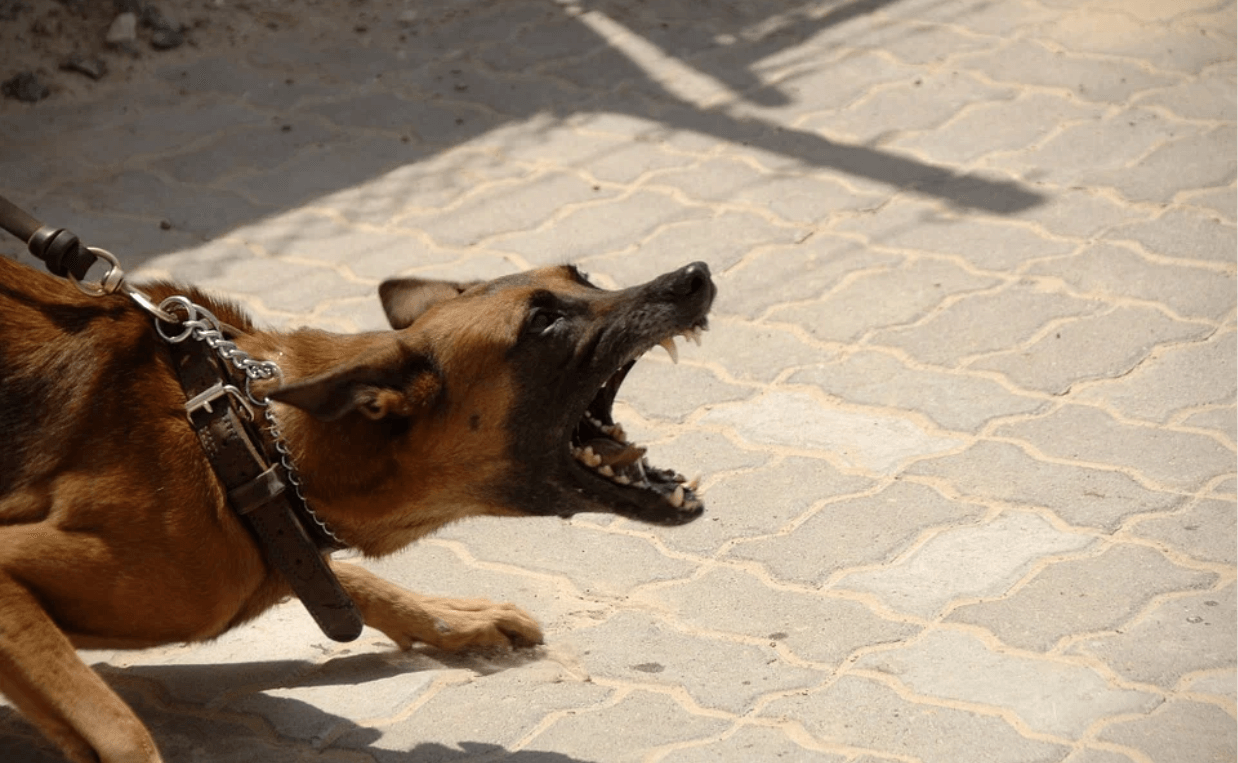
-
Frustration
Canine frustration aggression is often referred to as “redirected aggression” or “barrier aggression”. Frustration aggression is usually seen in dogs forced to spend a lot of time tied up, restrained on a leash or caged in a small area.
For example, if a dog does not receive proper exercise, he or she may experience a great deal of frustration leading to aggressive behavior.
What To Do About Aggression in Dogs
If your dog is behaving in an aggressive manner, the first step to take is to visit a veterinarian to rule out pain or disease. Talk to your veterinarian who may have insight into your dog’s breed and/or temperament.
Once you’ve ruled out sickness or pain, the next step is to try to determine what is causing the aggression and addressing the issue.
- Is your dog guarding food or other resource? See if this article will help. How to Prevent Unwanted Food Guarding in Dogs
- Is your dog fearful? What do you think he or she is afraid of? Try to address the fear through increasing his or her tolerance or improving your dog’s socialization skills through regular daycare attendance.
- Is your dog displaying dominance? If so, consider working with a canine behaviorist or trainer. Click here to learn more about the Canine Campus training program.
- Is your dog frustrated? If your dog is regularly kept in a kennel for many hours or does not receive enough exercise, consider our daycare services. He or she will have fun and come home tired and ready to relax.
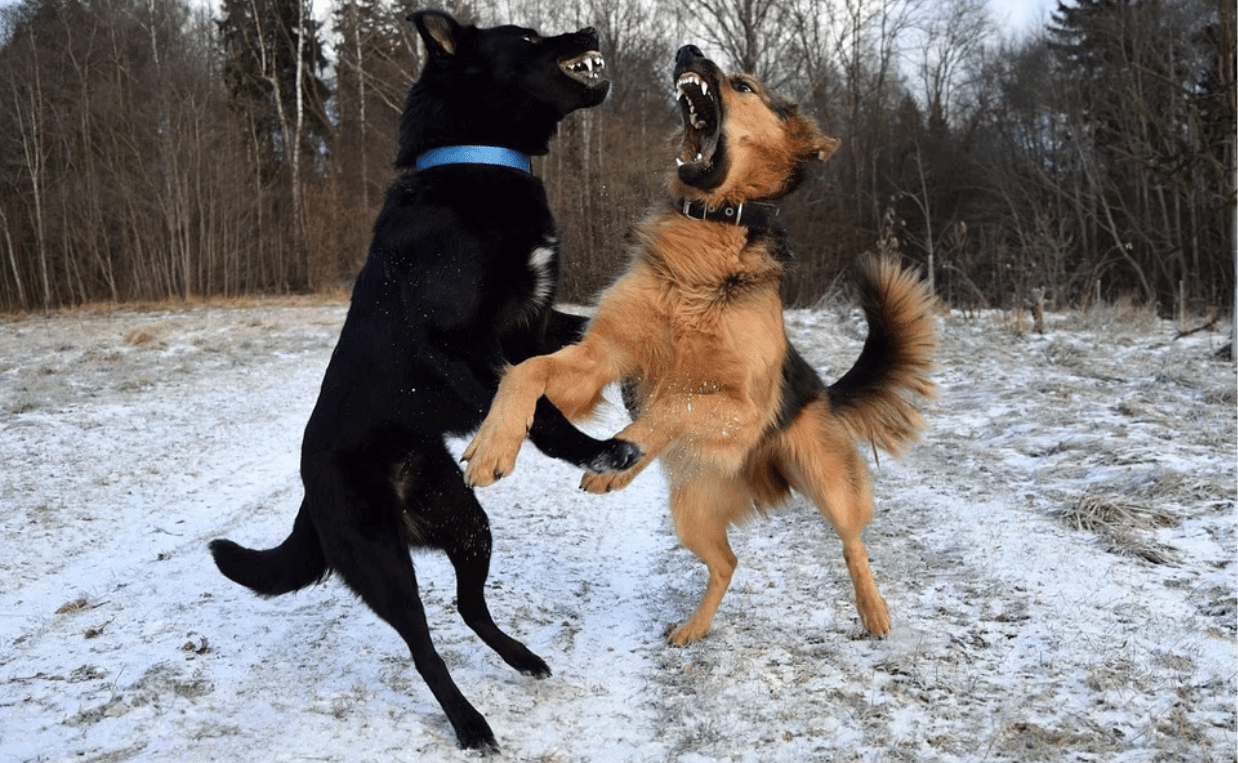
If these simple remedies do not work, it’s time to get serious about working with a dog behaviorist or trainer. Our trainer, Patti Davieau, has been training dogs for over 30 years. She has many certifications and awards, including special training in dealing with aggressive, reactive, anxious and impulsive dogs.
Here at Canine Campus we love dogs and want them to be happy and aggression-free. Please don’t hesitate to call us at 719-448-9600 if you would like to discuss your dog’s behavior or would like more information about our behavior training classes.
Have you dealt with aggression in dogs? What remedies did you try and were they successful? Please share your experience with the rest of the Canine Campus community in the comments below.













My dog is a mixed pit bull. My problem is company doesnt like coming over anymore cause my dog cooper wants to jump on them or sit on their laps. He loves to lick all over people but co . doednt take to kindly to my dogs behavior. What can i do? Hes not aggressive. He just loves everyone.
Penny, have you tried working with a dog trainer or behaviorist? They might be able to help you. In the meantime, you may want to try crate training to ensure your friends are comfortable around him. https://www.caninecampus.us/8-reasons-you-should-crate-train-your-dog.
My friend husband who is a doctor had a hip surgery that went wrong.. he can’t walk. They are very kind people do adopted a German Shepherd who is very aggressive to strangers not people he knows.. they can’t have any help come, no therapy.. can’t have family come and help… cost is not issue.. is there any boarding or help we can have them.. they are overwhelmed…
Thank you for writing in about your friend’s dog. My suggestion would be to find a dog trainer who specializes in aggressive dogs and has experience training an aggressive German Shepherd. I would look for someone who will come to the house and work with the dog his caregiver. I’m sorry to hear about your friend’s hip surgery and hope he will be able to recover in the future. Thank you again for coming to the blog – I hope you found the blog post helpful.